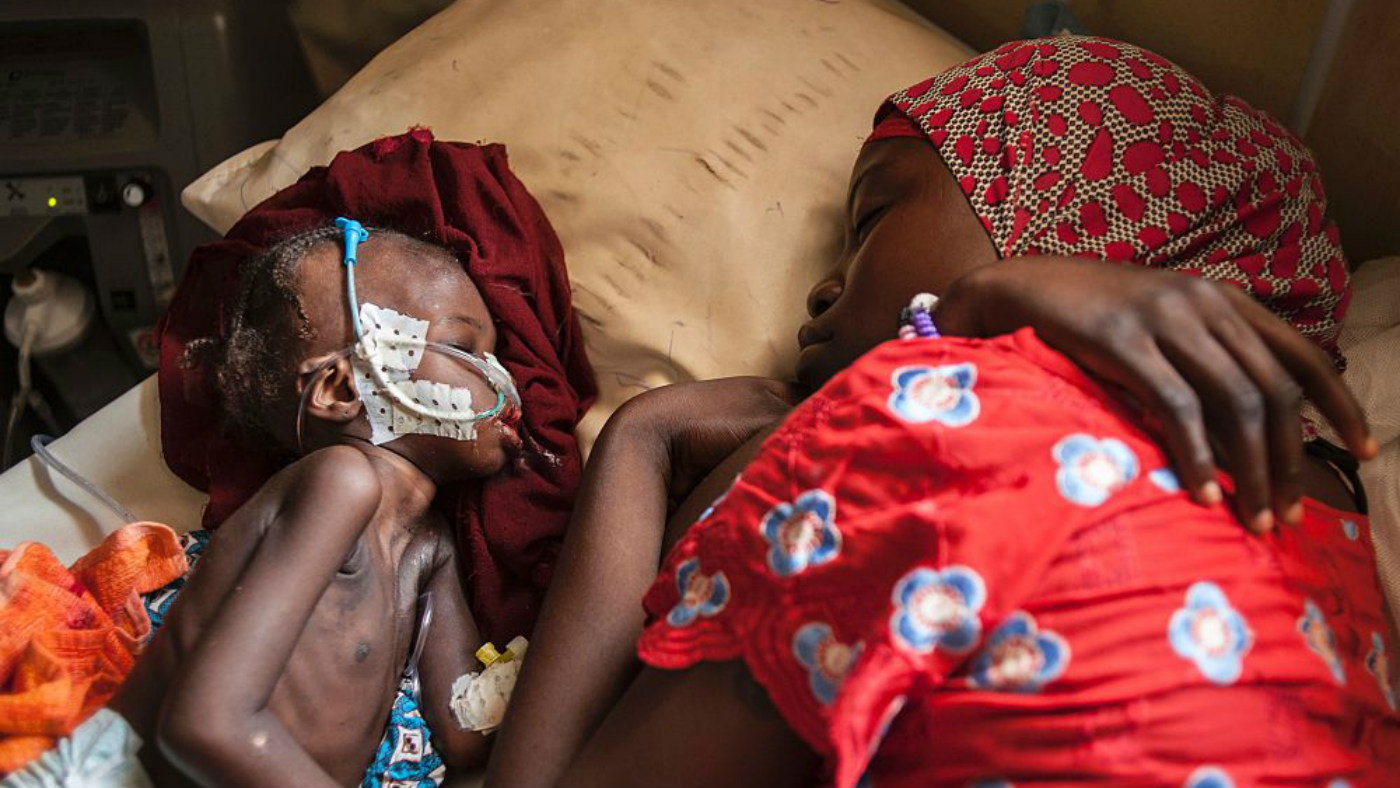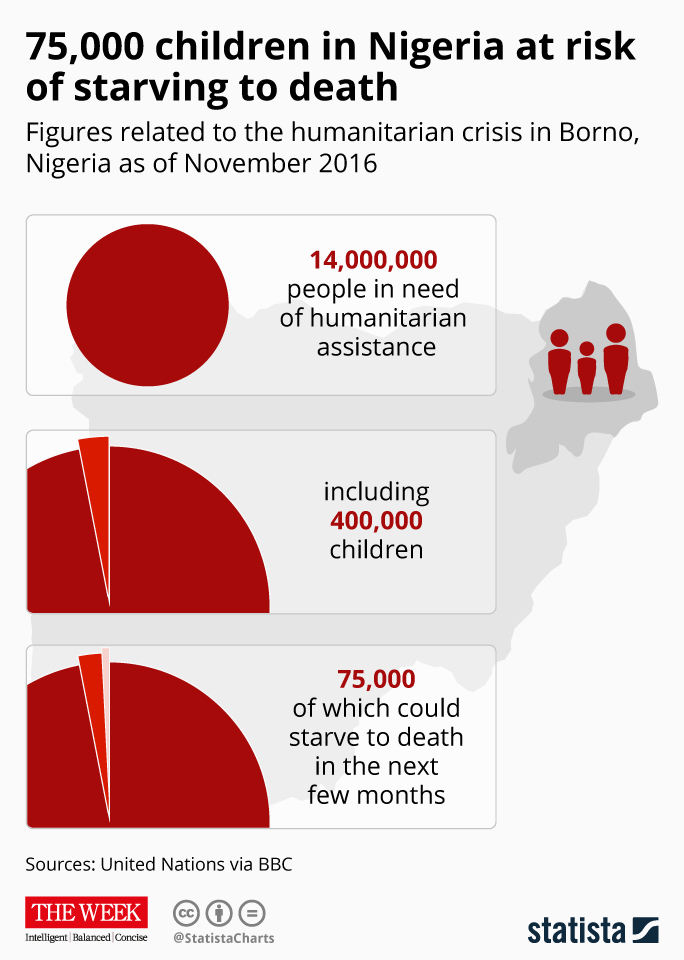Nigeria famine puts lives of 75,000 children at risk, says UN
Millions of people are struggling to cope after Boko Haram laid waste to the north east of the country

A free daily email with the biggest news stories of the day – and the best features from TheWeek.com
You are now subscribed
Your newsletter sign-up was successful
Nigeria is facing a humanitarian crisis as it struggles to cope with the fallout from Boko Haram's jihadist insurgency, according to the United Nations, which predicts that 14 million people will need aid in 2017.
Of that number, 400,000 children are in critical need of assistance, while 75,000 could die in the "few months ahead of us", UN humanitarian co-ordinator Peter Lundberg told a press conference in Nigeria's capital Abuja on Tuesday.
But the UN has not declared a "level three emergency", the classification for the most severe crisis, despite a warning of "famine-like conditions" from the World Food Programme.
The Week
Escape your echo chamber. Get the facts behind the news, plus analysis from multiple perspectives.

Sign up for The Week's Free Newsletters
From our morning news briefing to a weekly Good News Newsletter, get the best of The Week delivered directly to your inbox.
From our morning news briefing to a weekly Good News Newsletter, get the best of The Week delivered directly to your inbox.
"The humanitarian response hasn't scaled up adequately to meet a growing demand for food," says analyst Roddy Barclay in The Guardian. Ryan Cummings, of intelligence firm Signal Risk, agrees. "The scale of the humanitarian disaster in north-east Nigeria has been grossly underestimated," he warns.
Islamic fundamentalists from Boko Haram have laid waste to the north east of the country, around Borno state, since taking up arms against the federal government in 2009. BBC News says that tens of thousands have died and more than two million have been displaced, with major disruptions to farming and trade.

But a new report suggests the formation of a regional force to combat Boko Haram, with troops from Nigeria, Chad, Cameroon, Niger and Benin, is gaining ground against the militants.
The New York Times refers to a study by the International Crisis Group which says the jihadists - who controlled an area the size of Belgium in north east Nigeria last year - have since suffered a string of defeats.
A free daily email with the biggest news stories of the day – and the best features from TheWeek.com
"We've seen a dizzying downwards spiral in the number of attacks and suicide bombings," said Hans De Marie Heungoup, one of the report's authors. But those left behind have been suffering without water, food and sanitation.
Infographic by www.statista.com for TheWeek.co.uk.
-
 Why is the Trump administration talking about ‘Western civilization’?
Why is the Trump administration talking about ‘Western civilization’?Talking Points Rubio says Europe, US bonded by religion and ancestry
-
 Quentin Deranque: a student’s death energizes the French far right
Quentin Deranque: a student’s death energizes the French far rightIN THE SPOTLIGHT Reactions to the violent killing of an ultraconservative activist offer a glimpse at the culture wars roiling France ahead of next year’s elections
-
 Secured vs. unsecured loans: how do they differ and which is better?
Secured vs. unsecured loans: how do they differ and which is better?the explainer They are distinguished by the level of risk and the inclusion of collateral
-
 Epstein files topple law CEO, roil UK government
Epstein files topple law CEO, roil UK governmentSpeed Read Peter Mandelson, Britain’s former ambassador to the US, is caught up in the scandal
-
 Iran and US prepare to meet after skirmishes
Iran and US prepare to meet after skirmishesSpeed Read The incident comes amid heightened tensions in the Middle East
-
 Israel retrieves final hostage’s body from Gaza
Israel retrieves final hostage’s body from GazaSpeed Read The 24-year-old police officer was killed during the initial Hamas attack
-
 China’s Xi targets top general in growing purge
China’s Xi targets top general in growing purgeSpeed Read Zhang Youxia is being investigated over ‘grave violations’ of the law
-
 Panama and Canada are negotiating over a crucial copper mine
Panama and Canada are negotiating over a crucial copper mineIn the Spotlight Panama is set to make a final decision on the mine this summer
-
 Why Greenland’s natural resources are nearly impossible to mine
Why Greenland’s natural resources are nearly impossible to mineThe Explainer The country’s natural landscape makes the task extremely difficult
-
 Iran cuts internet as protests escalate
Iran cuts internet as protests escalateSpeed Reada Government buildings across the country have been set on fire
-
 US nabs ‘shadow’ tanker claimed by Russia
US nabs ‘shadow’ tanker claimed by RussiaSpeed Read The ship was one of two vessels seized by the US military